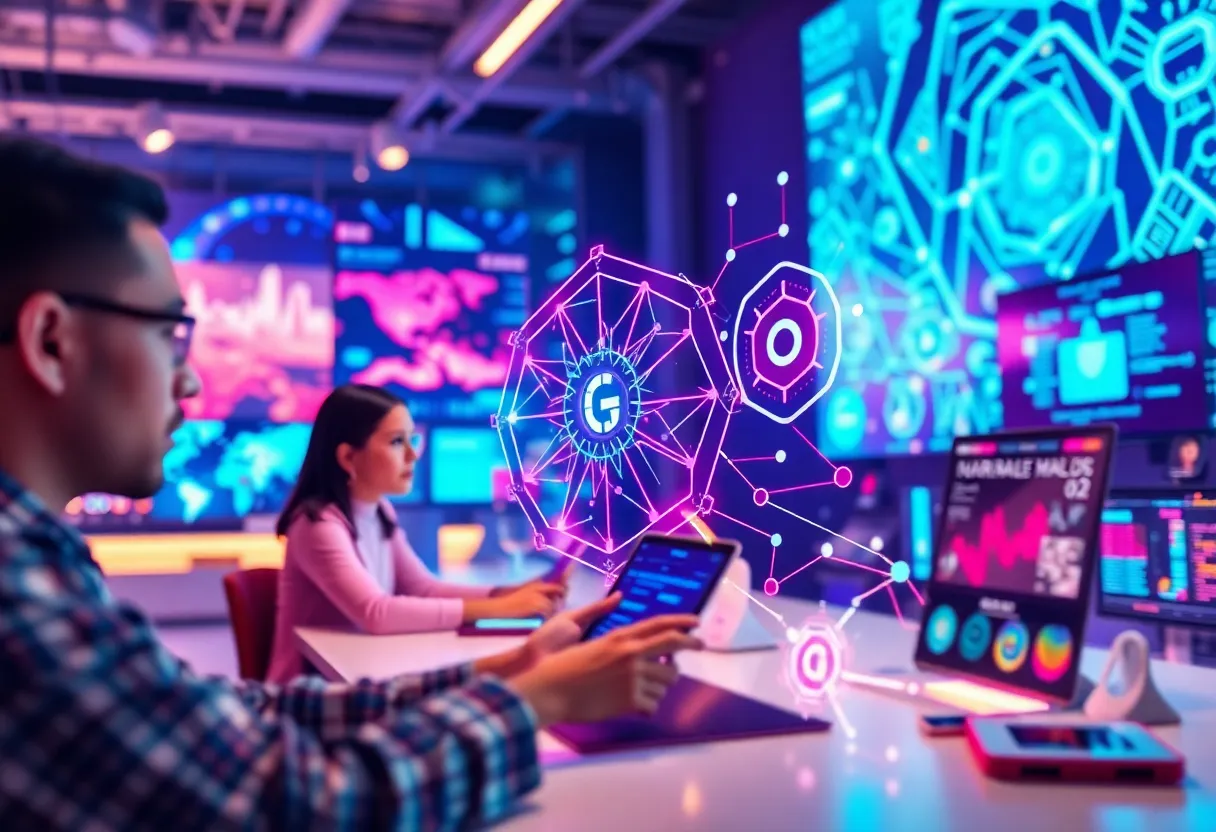

The impact of generative AI on marketing in Silicon Valley
Want to target the right audience? Sponsor our site and choose your specific industry to connect with a relevant audience.
Prominent brand mentions across targeted, industry-focused articles
High-visibility placements that speak directly to an engaged local audience
Guaranteed coverage that maximizes exposure and reinforces your brand presence
Interested in seeing what sponsored content looks like on our platform?
May’s Roofing & Contracting
Forwal Construction
NSC Clips
Real Internet Sales
Suited
Florida4Golf
Click the button below to sponsor our articles:
Sponsor Our ArticlesSilicon Valley is buzzing with excitement as businesses are increasingly looking to harness the power of generative AI to improve their marketing efforts. This cutting-edge technology has transformed the way marketers approach their campaigns and customer interactions. In the last 18 months, since the launch of ChatGPT 4.0, the conversation has evolved dramatically. Instead of asking, “Should we use generative AI?” marketers are now grappling with how to effectively implement it.
Generative AI is shaking up the world of marketing technology (martech) in three significant ways:
It’s not just about saving time and cutting costs; generative AI is also unlocking new avenues for revenue growth. By automating repetitive tasks such as lead scoring with tools like AlgoOps, marketing teams can focus their energies on strategic initiatives instead. It enables them to direct their efforts towards planning and decision-making, rather than drowning in data analysis.
Moreover, the ability to generate high-quality content at scale through tools like SpeakAI or Jasper.ai can allow marketing departments to amplify their creativity and ideation processes. Consistency is key in today’s fast-paced digital world, and these tools minimize human errors while allowing companies to handle growing demands without needing to expand their workforce.
Generative AI is proving invaluable when it comes to improving customer experiences. By utilizing platforms like Regie.ai for targeted outreach or Egobooster for crafting personalized sales messages, businesses can engage their customers more effectively. With real-time recommendations from tools like Compelling, sales teams can make informed decisions on the next steps to close deals faster.
Overall, the potential for increasing conversion rates through tailored communications is immense. Companies employing personalized marketing strategies can not only capture attention more effectively but also foster increased customer loyalty.
There’s so much potential, but not all generative AI use cases are being fully harnessed. An assessment shows stark differences in the demand for certain applications compared to what vendors offer. Identifying these gaps is crucial for both marketers and AI solution providers looking to deepen their impact.
From specialized reporting analytics tools like labnify.com that analyze email performance, to copywriting solutions for product descriptions and press releases—marketers have myriad options. However, they need to align their demands with existing solutions to leverage the full capabilities of generative AI effectively.
As Silicon Valley continues to innovate, the future of generative AI in marketing looks promising. Companies that adapt and integrate these technologies into their operations will likely find themselves ahead of the curve. In this exciting landscape, businesses will not only improve efficiency and drive growth but also evolve their customer’s journey like never before.
In conclusion, embracing generative AI is no longer a luxury: it’s a necessity for those looking to thrive in the ever-evolving marketplace. The time to act is now—where will your organization venture in the world of AI?
What Are the Signs That Your Roof Needs Immediate Repairs? Your roof is a vital…
News Summary The Brittanee Drexel case, involving the disappearance of a young girl during a…
News Summary As Tropical Storm Helene approaches, Charleston residents are bracing for impacts including strong…
News Summary A remarkable incident occurred in Beaufort County, South Carolina, where 43 young rhesus…
News Summary In a commanding display, the South Carolina women's basketball team claimed their third…
News Summary HII is set to acquire the assets of W International, a metal fabricator…